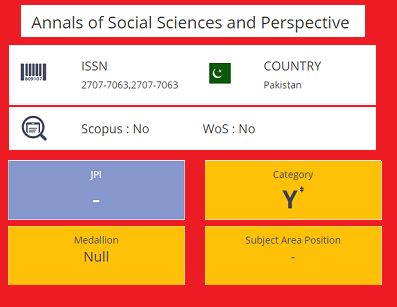Analyzing the Multidimensional Inequality in Access to Health Care Services in Pakistan
DOI:
https://doi.org/10.52700/assap.v3i1.138Keywords:
Multidimensionality health inequality, Factors affecting, Principal Component Analysis, Multiple Regression, Pakistan.Abstract
Health inequality is a global issue since the lack of one or more aspects of the essential health services still exists in 90% of the countries due to changing global economic conditions, political decisions and societal norms. The objective of the current study is to assess the effect of a set of socioeconomic, demographic, severity & non-severity and hospital fixed effects variables on multidimensionality health inequality in Pakistan. We measure multidimensional health inequality by combining eight dimensions of health inequalities and constructing the Multidimensional Health Inequality Index using Principal Component Analysis (PCA). Then multiple regression techniques are applied to empirically assess the impacts of selected variables on the response variable. The results show that social reference (-0.713), no. of doctors available (-0.109), type and severity of disease (-0.85 &-0.163), no. of diagnostic tests completed during the treatment process (-0.093), residential area (-0.097) and gender of the patient (0.170) significantly contribute towards the reduction of inequality among patients. The findings have strong policy recommendations for striving efforts to reduce health inequality to achieve “Good health and Well-being” the 3rd goal under the United Nations agenda on Sustainable Development.
Published
Issue
Section
Copyright (c) 2022 ANNALS OF SOCIAL SCIENCES AND PERSPECTIVE

This work is licensed under a Creative Commons Attribution-NonCommercial 4.0 International License.









